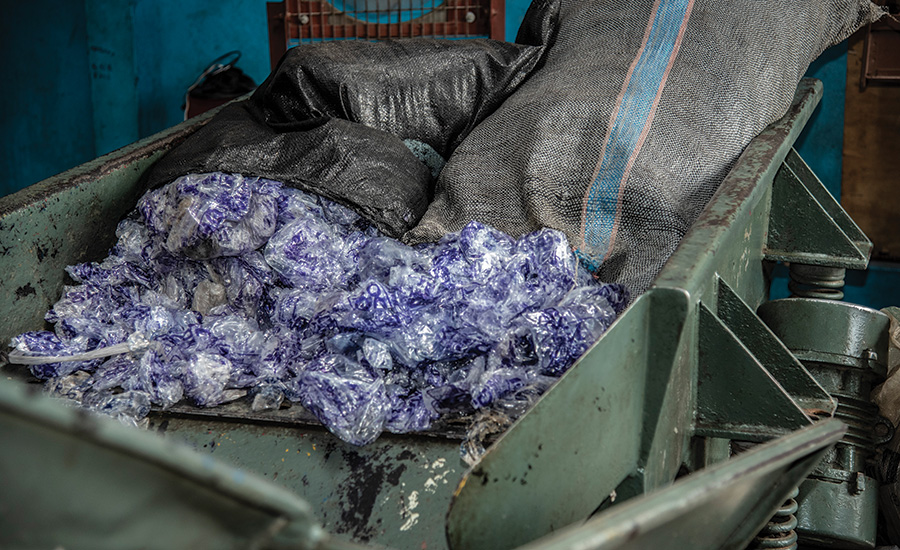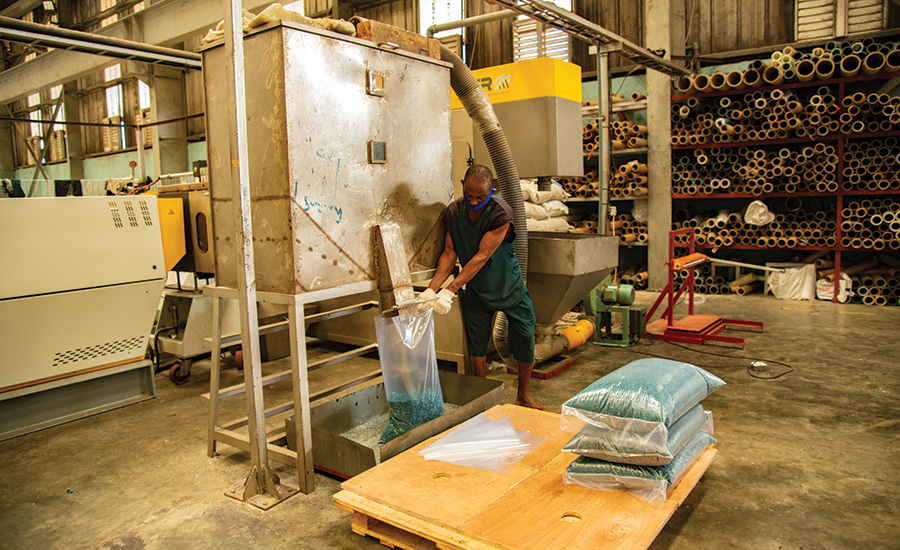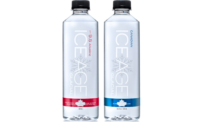By the end of this century, our planet will be home to another four billion people, with Africa’s population nearly tripling and making up almost half the world’s population. This surge in population will drive a range of urbanization challenges across the continent’s biggest cities, the most pressing of which include the availability of clean, safe drinking water and the need to manage the waste footprint amid a limited recycling infrastructure.
Perhaps nowhere across Africa are these issues more pressing than in Nigeria, where an estimated 29% of the population lacks access to clean water. While this statistic has improved significantly over the years, it is still entirely unacceptable. This absence of potable drinking water has led to water sachets, heat-sealed plastic sleeves of drinking water, becoming a fundamental, affordable and readily available source of drinking water in millions of Nigerian’s everyday lives. However, this widespread consumption has also caused the unintended consequence of environmental pollution due to inadequate waste management infrastructure and poor waste disposal behavior.

The Switch to Flexible
As in many developing countries, there is an informal waste collection economy, but particularly in Nigeria, this favors rigid plastic and disregards low-weight plastic water sachets because waste pickers are paid by weight. The improper management of plastics coupled with infrastructure not growing at the same pace means that only half of plastic waste is currently collected and around 10% is recycled. Despite numerous programs to target specific types of plastic, West Africa’s wide use of water sachet pouches paints a clear picture of the gap in curbing flexible plastic film waste.
As part of Dow’s global commitment to help advance a circular economy for plastics, the company set out to make a make positive impact on the plastic waste and pollution challenges in the region. Identifying this clear need to drive behavioral change, Dow entered into a partnership with Omnik, RecyclePoints and the Lagos Business School Sustainability Centre to launch a pilot program, ReflexNG. Based in Lagos, Nigeria, the project taps into the country’s entrepreneurial culture by showing that plastic is too valuable to be thrown away and incentivizing the collection of water sachets to be recycled and utilized in new, quality packaging applications. The program aligned with Dow’s global STOP THE WASTE sustainability target, which will enable the collection, reuse or recycling of one million metric tons of plastic globally by 2030, by diverting 600 MT of water sachets away from landfills (approximately 300 million sachets).

Recycling Brings Awareness
The water sachets will be collected by RecyclePoints, a Nigeria-based waste social enterprise that uses kiosks, a phone app and employs waste pickers in order to collect waste that can be recycled. The kiosks act as a bring-back focal point for the community to return waste in exchange for groceries, mobile phone credits, cash and other useful items. The waste collector receives points that can be used to secure rewards when the plastic films are brought to designated recycling centers. The pilot aims to employ over 200 registered waste pickers, and it will potentially increase the income of over 8,000 RecyclePoints app subscribers. With more than 70% of Nigerians living below the poverty line on wages of $2 per day or less, this waste collection opportunity is a viable way of providing much-needed jobs and income. To enable scale, additional waste social enterprises will be onboarded in the pilot and beyond.
Improving awareness and understanding of key recycling standards and techniques is also a crucial piece of ReflexNG. Lagos Business School’s (LBS) Sustainability Centre serves as an educational partner to enable small and medium waste enterprises to learn sustainability principles to enhance their businesses. Currently, LBS sustainability Centre runs a Circular Economy series while also working with Dow to train a select group of 40 social entrepreneurs who currently have businesses in the waste management space. The goal is to ensure that the education and materials these entrepreneurs receive through the process will result in long-term sustainable collection for flexible packaging, specifically water sachets.
Once the waste is collected, it will be taken to Omnik, where it will be processed into post-consumer recyclate (PCR). With the new supply stream and Dow technology, the PCR quality will be improved so it can be utilized for items like detergent pouches. Additionally, as part of this project, Omnik has funded a stationary buy-back center, operated by RecyclePoints, at premises of Lagos State Ministry of Environment to create long-term infrastructure for recovering plastic waste.
Beyond the pilot phase, which runs to February 2021, Dow will scale up Project ReflexNG to recover even more quantities of flexible packaging with potential for replication across the region. Ultimately, the program will help in making significant strides towards reducing the amount of waste generated in Africa that is disposed at uncontrolled dumpsites and landfills — currently more than 90%. Only through the power of collaborations like this can we drive sustainable solutions for local communities and empower the Africa’s growing middle class.






